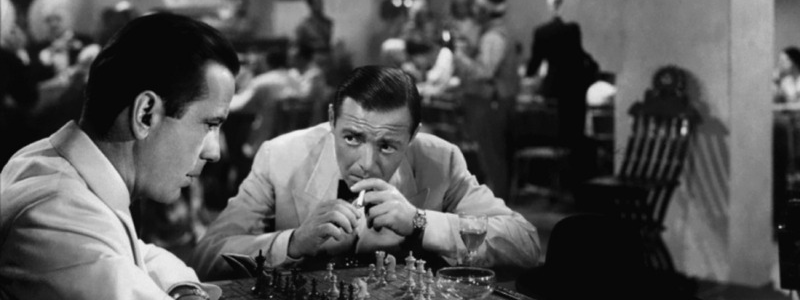
My passion for writing came from watching endless movies and comedies as a child. When I began to seek a career as a writer, my attention turned to classes, workshops, and mentorship. Here I began to break down the many parts of a story, learning the necessity and art of story structure. However, while learning the rules of a story is a crucial step to developing as a writer, it’s equally important to know how and when to break those rules. This is best done by observing great storytellers and their finest examples.
To fully appreciate and understand the foundations of storytelling, writers must delve into the minds of those who’ve come before them, examining the screenplays that have shaped cinematic history. I want to present five of the most inspirational scripts ever written, the qualities that made them great, and the invaluable lessons they provide to aspiring screenwriters.
Chinatown (1974) – Written by Robert Towne

Thanks to its masterful blend of film noir, mystery, and social commentary, Chinatown is often hailed as one of the best screenplays in cinema history. The script showcases Robert Towne’s exceptional ability to weave an intricate yet coherent narrative that keeps the audience hooked until the end.
Through carefully crafted dialogue and a multi-layered plot, Towne’s screenplay offers a wealth of lessons for writers, such as pacing, creating well-rounded characters, and using subtlety to drive a story forward.
Casablanca (1942) – Written by Julius J. Epstein, Philip G. Epstein, and Howard Koch

Casablanca’s screenplay stands the test of time as a beacon of exceptional dialogue, character development, and narrative structure. The film, set during World War II, presents diverse characters brought to life by its writers’ sharp, witty, and engaging dialogue.
In addition to its memorable lines, the screenplay demonstrates the power of crafting multi-dimensional characters who evolve throughout the story, making their eventual fates all the more impactful. Casablanca teaches writers the importance of balancing humour, romance, suspense, and the power of a well-placed twist.
Eternal Sunshine of the Spotless Mind (2004) – Written by Charlie Kaufman

Charlie Kaufman’s screenplay for Eternal Sunshine of the Spotless Mind is a prime example of how to create an unconventional narrative. The story follows a couple who, after a painful breakup, undergo a procedure to erase each other from memory. The screenplay’s nonlinear structure and exploration of memory and identity make it a unique work of art.
Eternal Sunshine demonstrates that writers should challenge narrative conventions boldly and that exploring complex themes that lead to powerful, emotionally resonant stories.
The Godfather (1972) – Written by Mario Puzo and Francis Ford Coppola

The Godfather is a masterclass in crafting a gripping, character-driven narrative adapted from Mario Puzo’s novel. The screenplay delves deep into the world of the Corleone family, exploring themes of power, loyalty, and morality. Puzo and Coppola’s writing demonstrates the importance of developing multi-faceted characters and meticulously building tension throughout a story.
The Godfather also shows the value of solid dialogue in developing character relationships and driving the narrative forward. Screenwriters can learn from The Godfather’s success by studying its effective use of pacing, its commitment to character development, and its unwavering focus on a theme.
Pulp Fiction (1994) – Written by Quentin Tarantino and Roger Avary

Pulp Fiction is renowned for its innovative narrative structure, snappy dialogue, and richly drawn characters. The screenplay, co-written by Quentin Tarantino and Roger Avary, weaves together multiple storylines.
It’s an excellent example of how to break traditional narrative moulds. Aspiring screenwriters can learn valuable lessons such as subverting audience expectations, crafting memorable dialogue, and developing a unique voice as a writer.
Reads as many great works as you can
Whether you’re an aspiring screenwriter or a lover of great storytelling, these screenplays are must-reads. They serve as a testament to the power of the written word and the limitless possibilities that await those willing to take risks, experiment, and embrace the challenges of the creative process.
If you genuinely desire to be a great writer yourself, you should never stop reading other great works. By studying these and other successful screenplays, writers gain a deeper understanding of the intricacies of storytelling and learn how to create compelling narratives that resonate with audiences. Reading masterful works can help you develop techniques and skills and inspire you, encouraging you to push the boundaries of cinema and contribute to the art form’s evolution.




